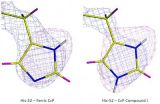(Press-News.org) The first dengue vaccine candidate (CYD-TDV) to reach phase 3 clinical testing has shown moderate protection (56%) against the disease in Asian children, according to new research published in The Lancet.
Dengue is a mosquito-borne disease that infects around 390 million people each year, of whom about 96 million suffer from symptomatic infection. WHO estimates that the global burden of dengue has risen 30-fold over the past 50 years, with over half of the world's population at risk of the disease.
There is no licensed vaccine available to treat or prevent dengue fever, and efforts to develop one have been complicated by the fact that dengue is caused by four distinct dengue viruses, and a vaccine must target all four serotypes (DENV 1–4).
This phase 3 trial took place in dengue-endemic areas across five countries in Asia, a region that accounts for over 70% of the global dengue burden. The study involved 10 275 healthy children aged 2 to 14 years who were randomly assigned to receive three injections of the CYD-TDV vaccine (6851) or a placebo (3424) at 0, 6, and 12 months, and followed for up to 2 years.
The researchers recorded 250 dengue cases more than 28 days after the third injection—117 in the vaccine group and 133 in the placebo group, demonstrating an overall protective efficacy of 56.5%.
The vaccine also showed 88.5% efficacy after 3 doses against severe disease (dengue haemorrhagic fever) which leads to hospitalisation for over half a million people (mostly children) every year, and 67% against dengue-associated hospitalisation.
The researchers found that the vaccine gave low protection (35%) against DENV 2, but more than 75% protection against DENV 3 and 4, and 50% against DENV 1.
The vaccine was generally well tolerated. A total of 647 serious adverse events were reported, 402 (62%) in the vaccine group and 245 (38%) in the placebo group.
According to lead author Dr Maria Rosario Capeding from the Research Institute for Tropical Medicine in the Philippines, "Our results suggest that vaccination with CYD-TDV can reduce the incidence of symptomatic dengue infection by more than half and importantly reduced severe disease and hospitalisations. This candidate vaccine has the potential to have a significant impact on public health in view of the high disease burden in endemic countries."*
Writing in a linked Comment, Professor Annelies Wilder-Smith from Lee Kong Chian School of Medicine, Nanyang Technological University, Singapore says, "Perhaps the most interesting finding of this trial was that efficacy after at least one dose was almost as high as that after three doses…Because three doses 6 months apart is an inconvenient and costly immunisation schedule for scale up in national programmes, the question of whether sufficient efficacy can be achieved with a lower number of doses deserves further assessment."
She adds, "With an estimated 96 million clinically apparent dengue infections annually, a reduction by half would present a significant public health benefit that would support dengue vaccine introduction….Whether the armamentarium of alternative vaccine candidates presently in the pipeline (including inactivated, live attenuated, chimeric, recombinant, subunit and DNA vaccines) will improve efficacy beyond 56% remains to be established. For the moment, the CYD-TDV vaccine is the best we have; however, with 56% efficacy it will never be a single solution. Continued support for the development of other novel strategies including drugs, improved case management, insecticides, and new approaches to vector control, is needed before effective dengue control becomes a credible prospect."
INFORMATION:
NOTES TO EDITORS:
The study was funded by Sanofi Pasteur.
*Quote direct from author and cannot be found in text of Article.
The Lancet: World's most advanced dengue vaccine candidate shows promise in phase 3 trial
2014-07-11
ELSE PRESS RELEASES FROM THIS DATE:
The Lancet: Extra dose of inactivated polio vaccine boosts immunity in children and could speed up global eradication efforts
2014-07-11
Giving children under 5 years old an extra dose of inactivated polio vaccine (IPV) helps to boost their immunity to the poliovirus and should be added to vaccination programmes in polio-endemic countries and those facing a high risk of imported cases, suggests new research published in The Lancet.
Lead author Dr Jacob John from Christian Medical College, India explains, "Adding a supplementary IPV dose to children already vaccinated with oral poliovirus vaccine (OPV) may hasten polio eradication by boosting herd immunity in endemic regions, act as a booster to prevent ...
The Lancet: Novel treatment for drug-resistant tuberculosis shows promise, but concerns for patient safety remain
2014-07-11
In a viewpoint published this week in The Lancet, the Community Research Advisors Group (CRAG) argue that research into bedaquiline – a new drug, fast tracked for multidrug-resistant tuberculosis (MDR-TB) – should proceed cautiously in people with drug-sensitive tuberculosis. CRAG, an international, community-based advisory board for the US Centers for Disease Control and Prevention's Tuberculosis Trials Consortium, writing in The Lancet independently, urge researchers to balance the goal of shortening treatment for drug-sensitive TB with patient safety.
Bedaquiline ...
Cost of expensive medication in dialysis catheters may be offset by reduced complications
2014-07-11
Washington, DC (July 10, 2014) — Using an expensive agent to prevent blood clots in kidney failure patients' dialysis catheters may turn out to be less costly overall due to its ability to reduce medical complications, according to a study appearing in an upcoming issue of the Journal of the American Society of Nephrology (JASN).
Recombinant tissue plasminogen activator (rt-PA) is a medication used to break up blood clots that occur in the vessels of patients having a heart attack. A recent clinical trial revealed that using rt-PA once per week plus the anticlotting agent ...
High stress, hostility, depression linked with increased stroke risk
2014-07-10
Higher levels of stress, hostility and depressive symptoms are associated with significantly increased risk of stroke or transient ischemic attack (TIA) in middle-age and older adults, according to new research in the American Heart Association journal Stroke.
A TIA is a stroke caused by a temporary blockage of blood flow to the brain.
Researchers investigated how psychological factors might influence risk for chronic disease, using data from the Multi-Ethnic Study of Atherosclerosis (MESA), an ongoing study on cardiovascular disease risk factors in participants living ...
After a concussion, which teens will have emotional symptoms?
2014-07-10
CHICAGO – After a concussion, teens who are sensitive to light or noise may be more likely to also have emotional symptoms such as anxiety, according to a study released today that will be presented at The Sports Concussion Conference in Chicago, July 11 to 13, 2014, hosted by the American Academy of Neurology, the world's leading authority on diagnosing and managing sports concussion. The conference will feature the latest scientific advances in diagnosing and treating sports concussion from leading experts in the field.
The symptoms after a concussion can vary widely ...
Neutron crystallography solves long-standing biological mystery
2014-07-10
The controversy centres around a family of enzymes known as heme enzymes, due to the presence of a heme group in their active site. At the centre of the heme cofactor is an iron (Fe) atom, which becomes oxidised (ferryl) when a reacting heme is in an intermediate state called Compound I. The question that has remained unanswered for decades is whether this oxidation involves just an oxygen atom (O), or a hydroxyl group (OH). Resolving this fundamental question has implications for understanding oxidative processes within living cells, which is critically important for drug ...
Astronomers find 7 dwarf galaxies with new telescope
2014-07-10
Meet the seven new dwarf galaxies.
Yale University astronomers, using a new type of telescope made by stitching together telephoto lenses, recently discovered seven celestial surprises while probing a nearby spiral galaxy. The previously unseen galaxies may yield important insights into dark matter and galaxy evolution, while possibly signaling the discovery of a new class of objects in space.
For now, scientists know they have found a septuplet of new galaxies that were previously overlooked because of their diffuse nature: The ghostly galaxies emerged from the night ...
Study provides new approach to forecast hurricane intensity
2014-07-10
VIDEO:
This is the one-of-a-kind, Alfred C. Glassell, Jr., SUSTAIN research facility at the UM Rosenstiel School of Marine and Atmospheric Science, where Haus and colleagues will conduct further studies on...
Click here for more information.
MIAMI – New research from University of Miami (UM) Rosenstiel School of Marine and Atmospheric Science suggests that physical conditions at the air-sea interface, where the ocean and atmosphere meet, is a key component to improve forecast ...
Extinct sea scorpion gets a Yale eye exam, with surprising results
2014-07-10
Poor peepers are a problem, even if you are a big, bad sea scorpion.
One minute, you're an imperious predator, scouring the shallow waters for any prey in sight. The next, thanks to a post-extinction eye exam by Yale University scientists, you're reduced to trolling for weaker, soft-bodied animals you stumble upon at night.
Such is the lot of the giant pterygotid eurypterid, the largest arthropod that ever lived. A new paper by Yale paleontologists, published in the journal Biology Letters, dramatically re-interprets the creature's habits, capabilities, and ecological ...
Despite setback, 'Mississippi Baby' represents significant breakthrough in effort to end AIDS
2014-07-10
Washington, D.C.—July 10, 2014—In response to today's announcement that the "Mississippi Baby," believed to have been functionally cured of HIV, has now been found to have detectable levels of the virus, the Elizabeth Glaser Pediatric AIDS Foundation (EGPAF) expresses disappointment in this setback but remains hopeful that the scientific breakthrough that allowed the child's HIV levels to remain undetectable for more than two years will continue to help researchers understand how to control HIV and ultimately develop a cure.
"Although we had high hopes that the child ...



